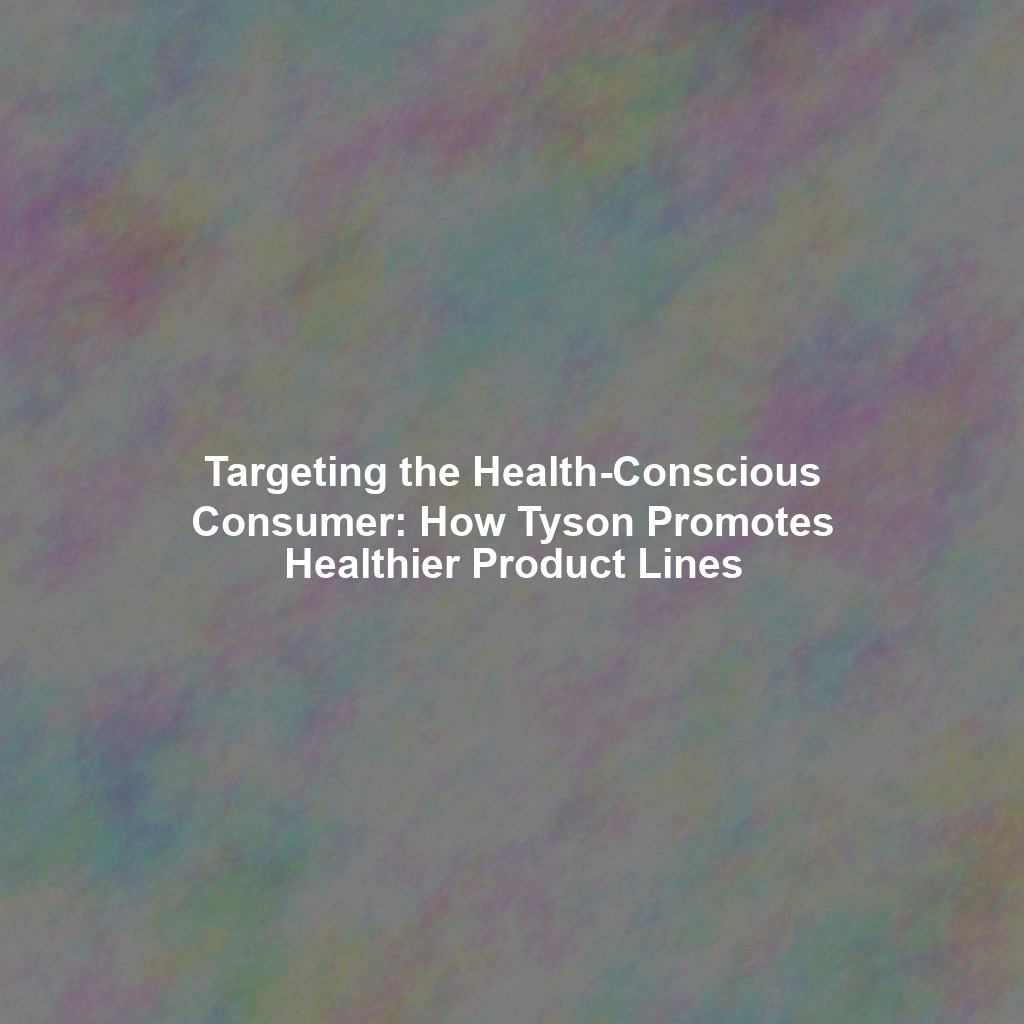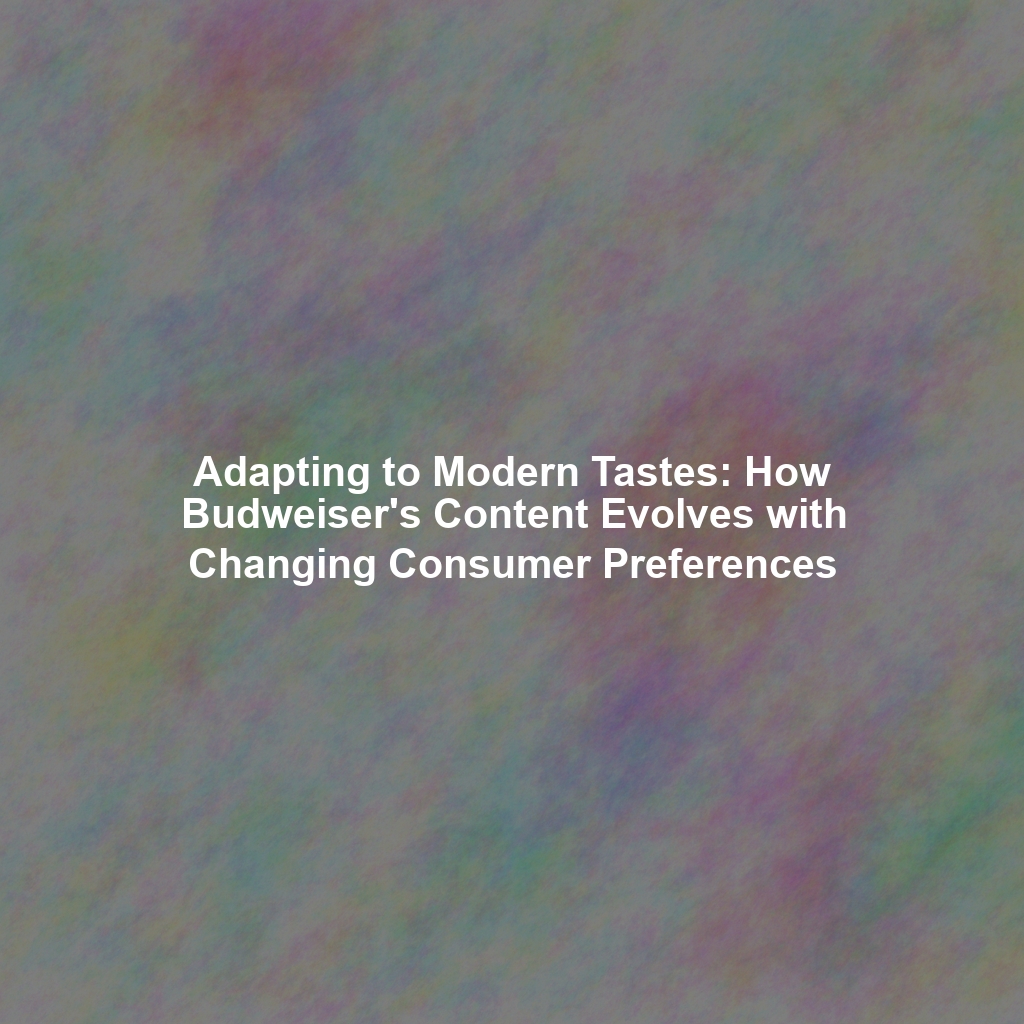In today’s world, consumers are increasingly conscious of the impact their choices have on the environment and society. Companies, especially those in the beverage industry, are under immense pressure to demonstrate their commitment to sustainability and social responsibility. Molson Coors, a global brewing giant, has recognized this shift and actively integrates ethical initiatives into its marketing narratives. This article delves into how Molson Coors approaches this challenge, examining their efforts in water conservation, waste reduction, responsible sourcing, responsible drinking campaigns, and community involvement, and assessing the impact these initiatives have on their brand image and consumer perception.
Walking the Walk: Molson Coors’ Sustainability Pillars
Molson Coors understands that sustainability isn’t just a buzzword; it’s a core business imperative. Their sustainability strategy is built upon several key pillars, which they actively promote through their marketing and communication efforts.
Water Stewardship: Brewing Responsibly
Water is, quite literally, at the heart of the brewing process. Molson Coors recognizes its reliance on this precious resource and has implemented ambitious water stewardship programs. They’ve invested heavily in water-efficient technologies in their breweries, aiming to reduce water usage per barrel of beer produced. Their marketing often highlights these efforts, showcasing their commitment to responsible water management. For example, campaigns might feature imagery of pristine water sources or stories about communities benefiting from water conservation projects supported by Molson Coors. This strategy leverages the inherent connection between beer and water to create a positive brand association.
Waste Reduction and Circularity: Closing the Loop
Beyond water, Molson Coors is focused on minimizing waste throughout its value chain. This includes reducing packaging waste, finding innovative uses for spent grain (a byproduct of brewing), and promoting recycling programs. Their marketing often showcases the eco-friendly aspects of their packaging, such as using recycled materials or designing for recyclability. They also partner with organizations to promote recycling initiatives, further reinforcing their commitment to waste reduction. A key example is how they communicate about their efforts to turn spent grain into animal feed or biofuel, demonstrating a commitment to the circular economy.
Responsible Sourcing: From Farm to Bottle
Molson Coors recognizes that the quality of their ingredients, and the ethical practices of their suppliers, directly impact the quality of their beer and their overall brand reputation. They are committed to responsible sourcing, ensuring that their ingredients are sourced sustainably and ethically. This includes working with farmers to promote sustainable agricultural practices and ensuring fair labor standards throughout their supply chain. While direct marketing of sourcing details can be complex, Molson Coors often highlights the quality and origin of their ingredients, implicitly suggesting a commitment to responsible sourcing practices. They might, for instance, feature stories about the barley farmers they partner with.
Beyond the Brewery: Social Responsibility in Action
Molson Coors’ commitment extends beyond environmental sustainability to encompass social responsibility, particularly in promoting responsible drinking and supporting the communities where they operate.
Responsible Drinking Campaigns: Promoting Moderation
As a major player in the alcohol industry, Molson Coors has a responsibility to promote responsible drinking habits. They invest heavily in responsible drinking campaigns, often partnering with organizations to raise awareness about the dangers of drunk driving and underage drinking. These campaigns often feature public service announcements, educational materials, and partnerships with law enforcement agencies. While sometimes perceived as a necessary evil, these campaigns are crucial for maintaining a positive brand image and demonstrating a commitment to public safety. They can be very effective when integrated into overall marketing, demonstrating genuine care for consumers.
Community Involvement: Investing in Local Communities
Molson Coors actively supports the communities where they operate through charitable donations, volunteer programs, and partnerships with local organizations. This includes supporting initiatives focused on education, health, and community development. Their marketing often highlights these community involvement efforts, showcasing their commitment to giving back. For example, they might feature stories about employees volunteering at local charities or highlight the impact of their donations on community programs. This strengthens their brand image and fosters positive relationships with local communities.
The Impact on Brand Image and Consumer Perception
Molson Coors’ efforts to integrate sustainability and social responsibility into their marketing narratives have a significant impact on their brand image and consumer perception. Consumers are increasingly drawn to brands that align with their values, and Molson Coors’ commitment to ethical practices can be a key differentiator in a competitive market. By showcasing their sustainability initiatives, responsible drinking campaigns, and community involvement, Molson Coors can enhance their brand reputation, build customer loyalty, and attract new customers. However, authenticity is key. Consumers are adept at spotting “greenwashing,” so Molson Coors must ensure that their marketing claims are backed up by genuine actions and demonstrable results.
ESG Reporting and Marketing Communications
Transparency is crucial for building trust with consumers. Molson Coors publishes comprehensive Environmental, Social, and Governance (ESG) reports that detail their sustainability and social responsibility initiatives. These reports provide stakeholders with detailed information about their performance on key metrics, such as water usage, waste reduction, and greenhouse gas emissions. Molson Coors then uses these reports as a basis for their marketing communications, highlighting their progress and achievements in a transparent and credible manner. This approach helps to build trust with consumers and demonstrate their commitment to accountability.
Conclusion: Brewing a Better Future
Molson Coors understands that sustainability and social responsibility are no longer optional extras; they are essential for long-term business success. By actively integrating ethical initiatives into their marketing narratives, Molson Coors is not only enhancing their brand image and building customer loyalty, but also contributing to a more sustainable and responsible future. Their commitment to water stewardship, waste reduction, responsible sourcing, responsible drinking campaigns, and community involvement demonstrates a genuine desire to make a positive impact on the environment and society. As consumer expectations continue to evolve, Molson Coors’ proactive approach to ethical marketing will be crucial for maintaining their position as a leading player in the global beverage industry. By continuing to walk the walk and transparently communicate their efforts, Molson Coors can brew a better future for themselves and for the world.
 Skip to content
Skip to content
